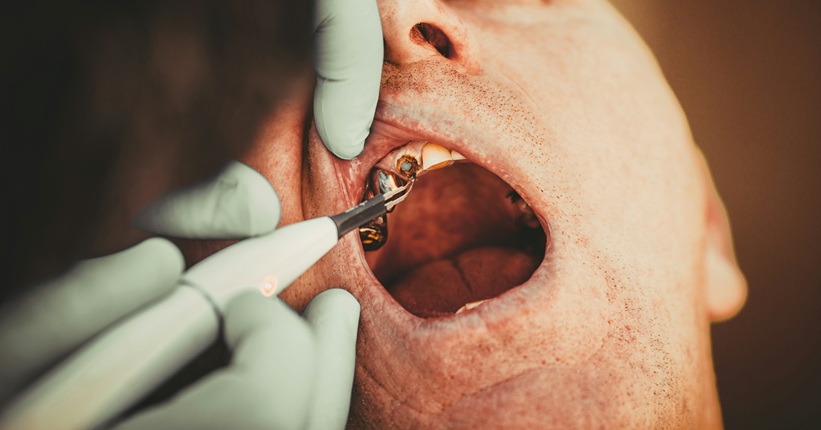
Why are regular visits to the dentist crucial for your health?
A healthy smile is not only a beautiful business card, but above all a sign of care for your own health. Regular visits to the dentist play a key role in maintaining oral health, preventing the development of many serious conditions and allowing you to enjoy a full life without pain and discomfort. Although many people visit the dentist only when pain or other disturbing symptoms appear, preventive check-ups are an essential part of taking care of dental and gum health. In this article, we will look at why regular check-ups at the dentist are so important, what benefits they bring, and how often we should schedule them to enjoy a healthy and beautiful smile throughout life.
Regular visits to the dentist are a fundamental part of taking care of oral health and general well-being. While many of us may associate these visits with a routine formality, their significance goes far beyond a simple dental check-up. Here are some key reasons why regular visits to the dentist are essential.
- Early detection of problems
The dentist is able to identify problems with teeth and gums at an early stage, before they become more serious and difficult to treat. Examples include tooth decay, gum disease, and even early signs of oral cancer. Early detection allows for more effective and less invasive treatment, which often means lower costs and less pain for the patient.
- Prevention and education
During the follow-up visit, the dentist and dental hygienist can provide valuable tips on oral hygiene. You will learn how to brush your teeth properly, use dental floss, and what products can help maintain oral health. Prevention is the key to preventing many dental problems, and regular visits are a great opportunity to update your knowledge on the subject.
- Removal of tartar
Even with the best home care, plaque and tartar can build up on your teeth. Professional cleaning in the dental office removes these deposits that can lead to gum disease and other problems. Regular removal of tartar prevents it from hardening and turning into stone, which can cause gingivitis and other health problems.
- Protection against serious health problems
Studies have shown a link between oral health and overall health. For example, gum disease can increase the risk of serious health problems, such as heart disease, diabetes, and stroke. Regular visits to the dentist help maintain the health of the gums, which has a positive effect on the health of the whole organism.
- Preservation of a beautiful smile
Regular check-ups at the dentist help to maintain the aesthetics of the smile. Professional cleaning removes discoloration caused by coffee, tea, wine or cigarettes, restoring the natural shine of teeth. In addition, the dentist can advise on teeth whitening and other aesthetic treatments that will improve the appearance of your smile.
- Reducing the risk of serious treatments
Regular check-ups can prevent the need for serious and expensive dental procedures in the future. Treating problems at an early stage is usually less complicated and less expensive than repairing serious damage to teeth and gums.
- Peace of mind
Regular visits to the dentist give you a sense of confidence that your oral health is under control. Knowing that you care for your teeth and gums brings peace of mind and allows you to enjoy life without worrying about sudden dental problems.
Follow-up visits to the dentist in Szczecin.
30 years of experience. Check us out.
What should you know about your first follow-up visit?
The first check-up visit to the dentist can be a stressful experience, especially if you don't know what to expect. To help you prepare and minimize unnecessary stress, we've put together a guide to walk you through the most important aspects of your first visit.
The course of the visit
- Registration: upon arrival at the dental office, report to the reception. The front desk staff will ask you to fill out a form regarding your medical condition and medical history.
- Talk to the dentist: The dentist will conduct a short interview with you to find out more about your health condition, your oral hygiene habits, and any problems that concern you.
- Oral examination: The dentist will carefully examine your teeth, gums and the entire oral cavity. He can also take x-rays to assess the condition of the teeth, jaw bones and detect problems invisible to the naked eye.
- Teeth cleaning: often the first check-up visit also includes a professional cleaning of the teeth, which removes plaque, tartar and discoloration.
- Discussion of the results: after the examination, the dentist will discuss the results with you, give recommendations for further treatment if necessary, and give tips for daily oral hygiene.
What's next?
- Treatment plan: If your dentist detects any problems that require treatment, they will discuss a plan for further action with you. This may include fillings, root canal treatment, gum treatments, or other procedures.
- Prevention: Even if your teeth are healthy, your dentist may recommend further check-ups every 6-12 months and regular teeth cleaning.
- Education: take advantage of the visit to learn more about how to care for your teeth and gums. Your dentist can recommend specific products, such as toothpaste or mouthwash, that will best suit your needs.
How to prepare for a check-up visit to the dentist?
Preparing for a follow-up visit to the dentist can help reduce stress and make the experience more comfortable and productive. Here are some practical tips to help you fully prepare for your visit.
- Take care of oral hygiene
Before visiting, brush your teeth thoroughly with a toothbrush and dental floss. Although the dentist will perform a professional cleaning anyway, it is worth making sure that your oral cavity is as prepared as possible. Try to avoid eating right before your visit, especially foods that can leave food residue in your teeth. However, if you need to eat something, brush your teeth or rinse your mouth before entering the office.
- Prepare documents and information
Bring any previous dental test results, if you have any. If you are visiting a new dentist, it may be helpful to provide a history of treatment. Make a list of all the medications you are currently taking, including dietary supplements. Some medications can affect your oral health and may be important to your dentist. Be ready to answer questions about your general medical history. Chronic diseases, allergies, surgeries and other health problems can affect dental treatment.
- List questions and problems
Think about what you would like to ask the dentist. This can apply to brushing techniques, oral hygiene products, toothache or the aesthetics of a smile. Write down any symptoms that bother you, such as pain, bleeding gums, tooth sensitivity, or any changes in the mouth.
- Mental preparation
If you're feeling anxious about visiting, consider asking a loved one to accompany you. Her presence can help you calm down. Practice relaxation techniques such as deep breathing or meditation to reduce the stress of the visit.
- Arriving for a visit
Arrive a few minutes before your scheduled appointment so that you have time to fill out any forms and calmly prepare yourself. Try to stay calm and remember that the dentist is there to help you take care of the health of your oral cavity.
How often should I visit the dentist?
Regular visits to the dentist are a key part of taking care of oral health. But how often should we visit the dentist? The answer to this question can vary depending on many factors, such as age, oral health, and individual needs of the patient. Below are general guidelines and factors to consider when determining the frequency of visits.
General guidelines
For most people, the dentist recommends check-ups every six months. Regular check-ups every six months allow early detection and treatment of dental problems such as caries, gum disease and other conditions.
Factors affecting the frequency of visits
- Oral health: if you have a healthy oral cavity without major problems, visits every six months are usually sufficient. However, if you have gum problems, tooth decay, are undergoing orthodontic treatment, or have other medical conditions, your dentist may recommend more frequent visits, such as every three or four months.
- Age: Children and the elderly may need more frequent visits. Children, especially those with milk teeth, should visit the dentist every three to six months to monitor tooth development and prevent tooth decay. Older people may have a higher risk of gum disease, tooth loss and other problems, which may require more frequent visits.
- History of dental diseases: People with a history of tooth decay, gum disease, or other dental problems should visit the dentist more often. Regular check-ups allow you to monitor your health and prevent the recurrence of problems.
- Lifestyle and habits: smoking, excessive alcohol consumption, improper diet rich in sugars and poor hygiene habits can increase the risk of dental problems. People with these habits may need more frequent check-ups.
- Pregnancy: pregnant women are more prone to gum and tooth problems due to hormonal changes. In this case, the dentist may recommend additional follow-up visits.
Tips for different ages
- The first visit to the dentist should take place after the appearance of the first tooth or at the latest until the baby's first birthday. After that, visits should be made every three to six months.
- Teens should continue to visit every six months, especially if they wear braces or have other specific dental needs.
- For most adults, visits every six months are sufficient, unless there are special indications for more frequent check-ups.
- Older people may need more frequent visits to monitor the condition of their gums, teeth and dentures. Visits every three to six months may be recommended.
Content author

Dr. Wojciech Gącienica-Ciułacz
Dr. Wojciech Gącienica-Ciułacz is a dentist for whom dentistry is a true vocation. In his practice, he stands out for his extraordinary ability to listen carefully to patients, thanks to which he is able to precisely adjust the treatment plan to the individual needs and expectations of each person. His approach is based on the deep conviction that effective dental therapy must take into account not only the medical aspect, but also the comfort and well-being of the patient.

Start treatment already today!
Make an appointment and discover why our patients recommend us to their loved ones. We will take the utmost care of your smile.

